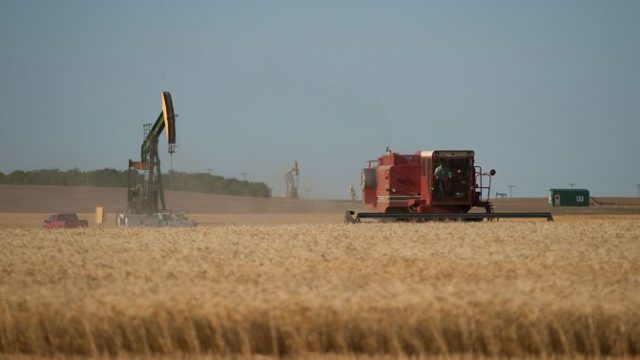Local Officials Dispute National Media Report: North Dakota's Oil Boom Was Not A "Loser"

“Oil boom a loser for North Dakota cities, counties, study finds,” was the headline for a McClatchy news article, picked up by the Drudge Report over the weekend. The article cited findings published by the National Bureau of Economic Research, a group that previously tried to tie fracking to increased high school dropout rates.
That obviously runs contrary to much of what we’ve heard about North Dakota’s oil boom which is that, challenges aside, it’s generally been a positive experience for the state.
But when I spoke to local officials, including two who were actually interviewed for the research, they disputed that claim. I wrote about it over at Watchdog today over at Watchdog today:
“I was surprised I was in the article,” Dickinson City Manager Shawn Kessel told Watchdog.
Kessel gave a presentation about the benefits of the oil boom at Duke University where he did say that, in the short term, the boom has presented challenges, but he said calling it a “loser” overall wasn’t right.
“I don’t think that’s accurate,” he said of that claim. “There’s no doubt that there’s been financial hardships, but I can tell you that overall the City of Dickinson has benefited from the energy industry in North Dakota.”
Brent Bogar, a former city commissioner in Williston, another oil patch city, said he “took offense at the whole concept of calling it a loser.”
“Yes there’s been some difficulties, but at the same time there’s been a lot of positives,” he said.
Bogar, who was interviewed by Raimi, said that while there has been debate over state assistance for local communities impacted by the oil boom, the overall experience has been positive.
“No state treats oil and gas development the same, whether that’s from taxation or regulation, it’s not the same. You can’t compare apples to apples. That’s the tough part about it. The state has invested a lot of money out west. Has it been the right amount of money? That’s been the debate for the last seven or eight years, but at some point you have to acknowledge what has been done,” he said.
“You can’t just throw out bombs like this,” he added.
“The problems with growth are better than when your small communities were dying,” Rep. Vicki Steiner told me. She’s not only a state lawmaker from Dickinson but also the executive director of the North Dakota Association of Oil and Gas Producing Counties, a group that represents the very local governments the study says are losers in the oil boom.
Steiner says her membership is actually quite optimistic:
“I don’t even know how you could make an argument that it wasn’t good,” Rep. Vicki Steiner, a Republican state lawmaker from Dickinson, told Watchdog. Steiner also works as the executive director of the North Dakota Association of Oil and Gas Producing Counties, a group formed to represent the interests of counties impacted by oil and gas development. …
Steiner said her organization just held its annual meeting, where representatives from the state’s oil boom counties, expressed optimism about the oil boom.
Both Steiner and Kessel pointed out that the NBER study used data that’s over a year old now. My impression was that the study essentially took a snapshot of Bakken communities in one stage of a long-term oil play and concluded from that the oil boom had been a “loser” from the communities. That’s obviously problematic as oil development is going to continue to produce revenues and commerce and population growth long after short-term infrastructure and other issues have been addressed.
Steiner and Kessel agreed with that assessment.
Nobody in western North Dakota is wearing rose colored glasses. The rapid growth in traffic, crime, and population have been difficult to keep up with. But I’m not sure anyone familiar with the facts on the ground, and free of any ideological or political motives, can say that the oil boom has been a loser.




